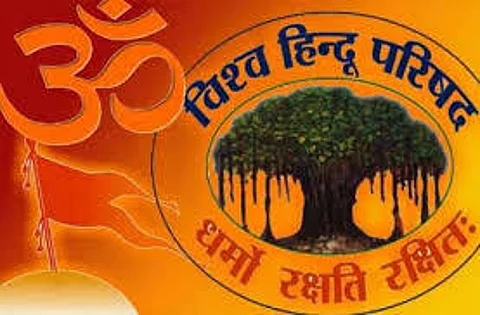

Vishva Hindu Parishad (VHP) has initiated a nationwide effort to liberate Hindu temples from the control of different state governments in the country. The initiative launches with a public awareness event in Kesarapalli, near Gannavaram airport, close to Vijayawada, Andhra Pradesh, on January 5.
Among their demands are the safeguarding of Sanatana Dharma, protection of Hindu temples from violations, and prevention of encroachments on temple properties. One of the key points in the list of demands is the transfer of non-Hindus employed in Hindu religious institutions to different departments.
VHP has kicking off this nationwide campaign - Hydava Sankharavam to unite Hindus not by caste, but by religion, from Andhra Pradesh Launchpad. In what could be termed as a counter to Congress party's campaign for caste census, the VHP, is coming out with its own movement - 'Hindu first, caste next'.
VHP disclosed that a proposed legislation for the governance and oversight of Hindu temples by members of the community has been created. The draft has already been submitted to Andhra Pradesh Chief Minister Chandrababu Naidu a few days ago for his review. The proposed legislation, developed by a think tank of former chief justices, Supreme Court advocates, spiritual leaders, and VHP members, specifies the structure for temple management to be overseen by the Hindu community.
The VHP team has been developing the draft legislation for the past 2-3 years. VHP condemned the on-going government oversight of temples, a practice that started under British rule for monetary benefits. It's regrettable that these temples still remain under government control post-Independence also.
The campaign's initial event ‘Hindutva Sankaravam’ in Gannavaram, close to Vijayawada, is anticipated to draw a significant number of attendees, including spiritual leaders who will lead the community. VHP leaders stressed that this movement is not driven by politics, citing Karnataka as an example where the idea of temple independence was suggested but left unresolved following an electoral defeat of BJP in the state assembly elections.
The proposed legislation suggests creating dharmic councils in every state, consisting of esteemed religious figures, former judges, and specialists in Hindu texts and customs. These councils would supervise the election of councils at the district level, which would subsequently designate trustees to oversee local temples. VHP asserts that solely practicing Hindus should be permitted to serve on these governing bodies, while politicians or those connected to political parties would be barred. The revenue produced by temples would be dedicated exclusively to promoting Hindu dharma and serving the community, instead of funding government initiatives.
